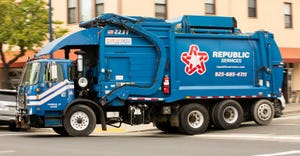BUSINESS MANAGEMENT: A Cozy Competition
December 1, 1999
Collaboration among competitors is not always illegal. Indeed, agreements among actual or potential competitors can be pro-competitive, say government antitrust regulators.
Most businesses believe that the federal antitrust agencies - the Federal Trade Commission (FTC) and the U.S. Department of Justice - would likely challenge joint ventures or other forms of partnership among competitors. However, the agencies cite the fact that during the past 20 years they have brought relatively few civil cases against competitor alliances.
Hoping to end any misunderstandings, the agencies have drafted "Antitrust Guidelines for Collaboration Among Competitors." The agencies published the proposed guidelines in the Federal Register in October to obtain advice and suggestions from businesses, consumers and the general public.
Today, competitive forces are driving firms toward complex collaborations to achieve goals such as expanding into different or distant markets, funding costly innovation efforts and lowering costs. Additionally, strategic alliances among small rival waste firms may prove to be an effective countermeasure against rampant consolidation among the waste industry's biggest operators.
The FTC and the Justice Department previously issued guidelines addressing several special circumstances in which competitor collaborations sparked antitrust concerns. These policies were aimed specifically at the healthcare industry and the licensing of intellectual property. The new guidelines attempt to clarify the agencies' overall analytical approach. As a result, businesses should be able to evaluate proposed transactions for possible antitrust implications, encouraging pro-competitive collaborations and deterring arrangements that are likely to harm competition and consumers.
Under the new guidelines, a "competitor collaboration" can be one or more agreements (other than merger agreements) between or among competitors to engage in economic activity. However, the guidelines do not address possible effects of agreements that block or limit competition by rivals. "Competitors" include actual or potential competitors in a relevant market. Firms also may be in a buyer-seller or other relationship, which does not eliminate the need to examine the competitor relationship.
Competitor collaborations involve one or more business activities, such as research and development (R&D), production, marketing, distribution, sales or purchasing. Information sharing and trade association activities also may occur via competitor collaborations.
New guidelines establish two "safety zones," where, except in extraordinary circumstances, competitive collaborators enjoy a degree of certainty for situations where the anti-competitive effects are so unlikely that the agencies presume the arrangements are lawful without investigating the circumstances.
First, the agencies will not file antitrust charges against a competitor collaboration where the combined market shares of the participants and the collaboration account for no more than 20 percent, and where the companies are not violating any other laws.
Second, the agencies will not challenge a collaboration in an innovation market where three or more independently controlled research programs - besides the research efforts of the collaboration - have the necessary means, resources and incentive to engage in R&D that is similar to the R&D activity of the collaboration.
Joint ventures that do not qualify for the two safety zones still could be pro-competitive and legal, the agencies say. Consequently, the government will examine the objectives of the arrangement and the market power wielded by the participants case-by-case. If the deal were likely to hurt competition, the government would undertake an in-depth study of the market, including the relative market share of competitors and the ease of entry into the market.
"If the examination of these factors indicates no potential for anti-competitive harm, the agencies end the investigation," the government says.
Parties interested in submitting their views on the guidelines are requested to do so by Jan. 5, 2000, in writing or electronic form to: Office of the Secretary, Federal Trade Commission, 600 Pennsylvania Ave., NW, Washington, D.C. 20580. Submissions should be captioned: "Draft Antitrust Guidelines for Collaborations Among Competitors - Submission of Views."
About the Author(s)
You May Also Like




